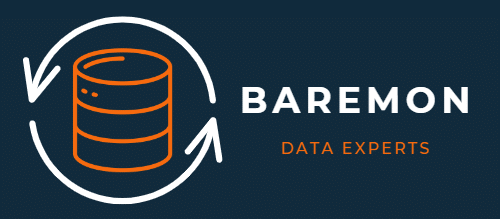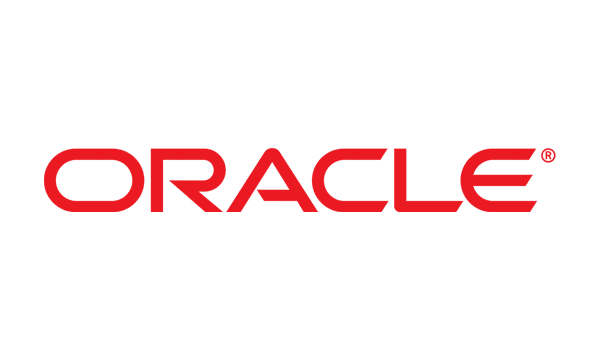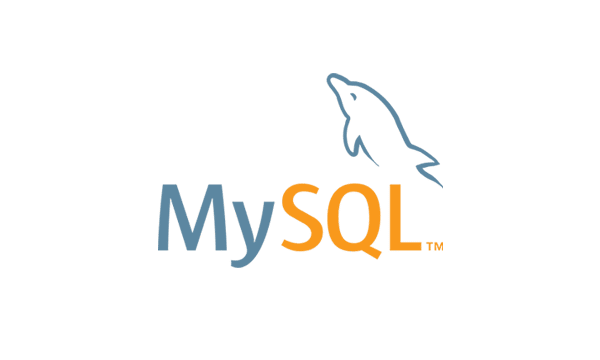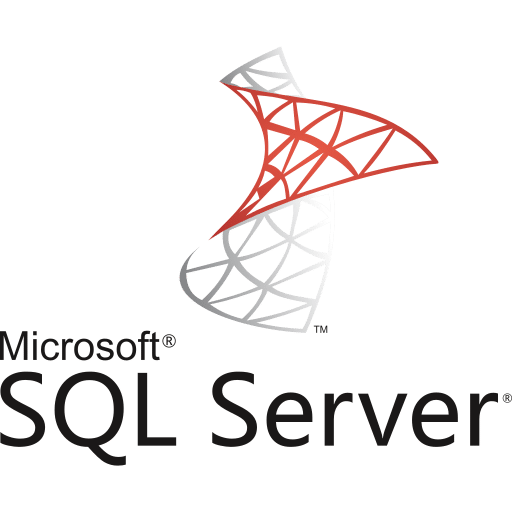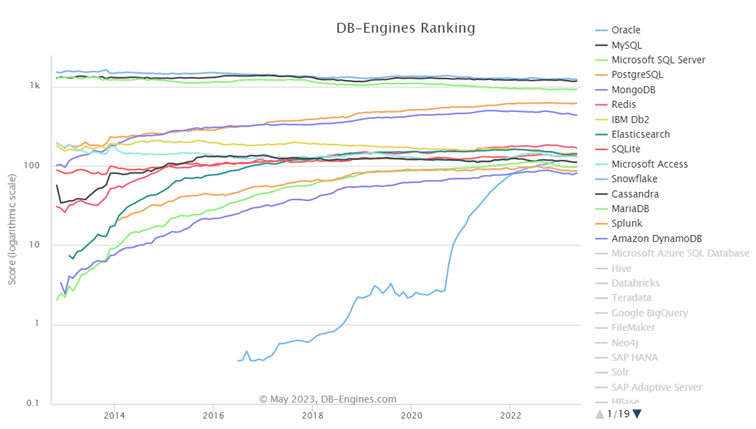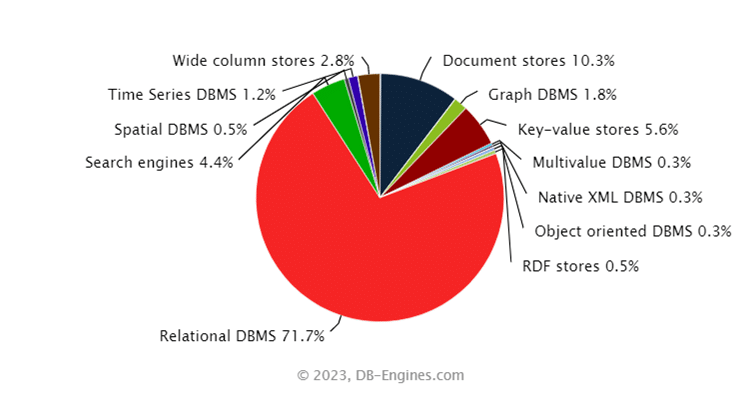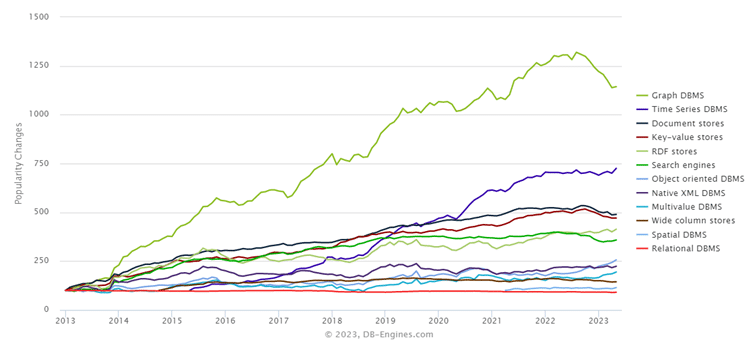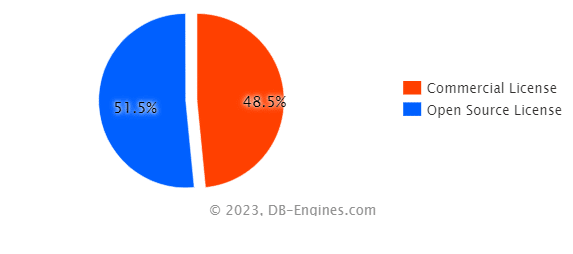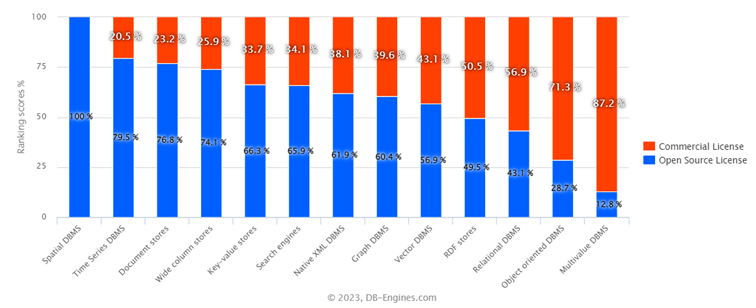DB-Engines is an initiative that collects and presents information about database systems and compiles a ranking based on their popularity which is updated every month. It determines popularity based on mentions of the systems on websites, the frequency of their searches, the frequency of discussions on technical forums, job postings, the number of profiles on professional networks mentioning the systems, and how many times they are mentioned on social media. The DB-Engines ranking includes more than 400 entries, an impressive number! So let’s take a look at what the current situation is in the database field.
The most popular databases - May 2023
1. Oracle – relational
2. MySQL – relational
3. Microsoft SQL Server – relational
4. PostgreSQL – relational
5. MongoDB – document
6. Redis – key-value
7. IBM Db2 – relational
8. Elasticsearch – Search engine
9. SQLite – relational
10. Microsoft Access – relational
11. Snowflake – relational
12. Cassandra – wide column
13. MariaDB – relational
14. Splunk – search engine
15. Amazon DynamoDB
16. Microsoft Azure SQL Database
17. Hive – relational
18. Databricks
19. Teradata
20. Google BigQuery
Let´s have a short summary of five most popular database systems.
Oracle is one of the most popular and stable relational databases for enterprise and web that dominates the rankings already for a few years. It is used by big companies like eBay, Netflix and LinkedIn. It works for structured as well as semi-structured data, facilitates lightning-fast transactions, supports blockchain tables, and helps create online analytical processing and transaction processing in a single database instance. It is reliable and ensures hight availability, but not easy to maintain. But it is less suited for small business because it is not open soursce and quite expensive solution.
MySQL is a very popular RDBMS software that is free, open-source and uses various proprietary licences. It is easy to use and flexible, which makes it a really good choice for beginners. It comes with a lot of useful features like data security, scalability on demand, higher efficiency, 24×7 server uptime, complete transactional support, comprehensive workflow control and lower total cost of ownership. Is used by companies like Facebook, Twitter, Youtube and WordPress.
MS SQL Server is used mainly in enterprise applications and has an advantage over Oracle in price. It is considered one of the most secure database servers with complex encryption algorithms making it virtually impossible to crack the security layers. It is very easy to install and easy to maintain and use. Microsoft SQL Server also contains excellent compression and encryption capabilities which result in improved data storage and retrieval functions. Accenture and Stack Overflow are among the companies that reportedly use Microsoft SQL Server
PortgreSQL is an open source, free object-relational DBMS. It is used by an increasing number of major companies including Uber, Netflix, Instagram and Spotify.. It works on all major operating systems and has a very active community of users developing plugins and libraries. It ensures high availability and it is easy to setup.
MongoDB is a document-oriented database system based on the NoSQL model used by Google, Facebook, Adobe and many other companies. It stores data inside a collection of documents and is available as a fully managed Cloud service and for deployment on self managed infrastructure. MongoDB was designed for high availability and scalability with built-in replication and auto-sharding. It´s easy to use and easy to maintain.
So clearly relational databases still dominate. Compared to last year, the ranking has not changed much, Snowflake, Databricks and Google BigQuery are on the rise. We can see the evolution of the popularity of each system in the following graph.
Various Database Models
As we mentioned, relational databases are still the most successful database model, with over 70% on the pie chart of individual models.
Open Source vs Commercial
The popularity of open source databases has surpassed that of commercial databases
5 most popular commercial DBMS:
1. Oracle
2. Microsoft SQL Server
3. IBM Db2
4. Microsoft Access
5. Snowflake
5 top open-source systems
1. MySQL
2. PostgreSQL
3. MongoDB
4. Redis
5. Elasticsearch
And if we look at the long-term trend, we see that the popularity of open source databases continues to grow.
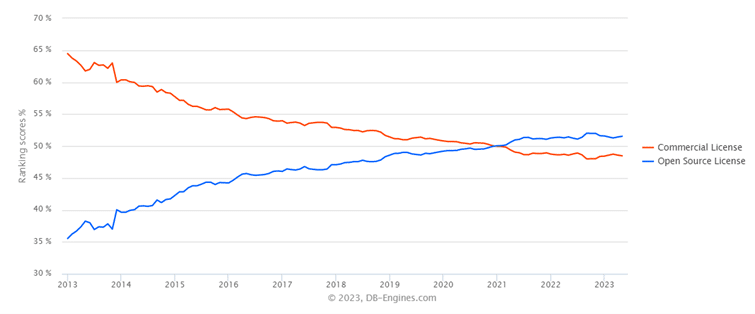
Open source solutions are most represented in spatial DBMS, Time Series DBMS, Document Stores and wide column stores, while commercial licenses prevail in multivalue DBMS, object oriented DBMS and relational databases.
